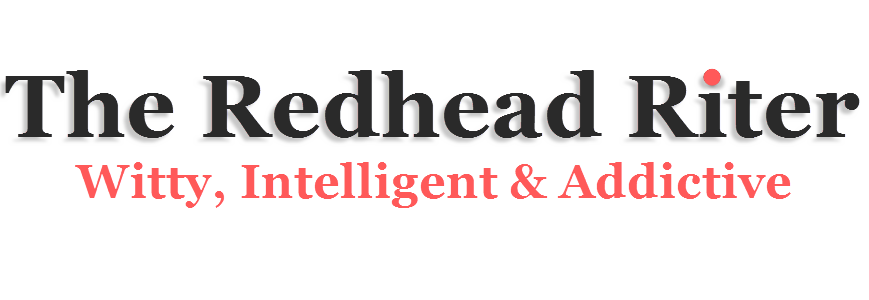 The phrase “hindsight is 20/20” is also known as “hindsight bias” which is primarily used sarcastically to criticize a decision made during a time of life or event as lacking wisdom or thought when compared with the knowledge obtained after the fact. Which basically means that if you could go back, you would react or do things differently. The predictability of the circumstance is said to have been totally obvious and the “criticizer” often has a haughty attitude exhibited to the “criticized” with statements such as “You should have”, “You could have”, “I would have” or “I can’t believe you”. Run from the “I told you so” individual who by nature can not offer constructive criticism.
The phrase “hindsight is 20/20” is also known as “hindsight bias” which is primarily used sarcastically to criticize a decision made during a time of life or event as lacking wisdom or thought when compared with the knowledge obtained after the fact. Which basically means that if you could go back, you would react or do things differently. The predictability of the circumstance is said to have been totally obvious and the “criticizer” often has a haughty attitude exhibited to the “criticized” with statements such as “You should have”, “You could have”, “I would have” or “I can’t believe you”. Run from the “I told you so” individual who by nature can not offer constructive criticism.
Walking the hindsight tightrope is a delicate balancing act with self, family and friends. We try to improve our relationships and actions by analyzing our choices in the past to make positive character changes for future choices. Constructive criticism during a “hindsight moment” can be life changing whether you are giving the advice to yourself or to someone else. However, no matter how helpful or kind the intention, not everyone is receptive to criticism. Positive criticism should be unemotional and not blaming which means that the words “you”, “could have”, “should have”, “would have” can not be used because of the negative connotation.
As a parent, a teacher, or a boss, hindsight is a valuable teaching tool. We can draw from our past the lessons learned and deemed as actions preferably not to be repeated. As an example of instructive hindsight, as a parent one might relate a snippet of a past mistake such as “I was in an automobile wreck, thrown from the car and broke both of my legs because I didn’t wear my seat belt. I missed playing on the football team for the entire season.” If you are trying to teach your teenage child the significance of wearing a seat belt, the message holds more meaning because there is a definite possible negative consequence that someone they know has suffered which is much more powerful than “you’ll get a ticket” or “because I said so.”
Looking in the proverbial mirror, the person we see on the outside is not the person that we know to be on the inside. No matter how transparent our emotions or life, everyone has a private self that is filled with emotions we deem too personal to share. Hindsight can quickly turn into negative self-defeating criticism. Earl Nightingale said, “You become what you think about.” Is your self-talk silent, but self-destructive or are you your best cheerleader? That little voice that is running around in your head all day long saying this and that often yells louder in your head than the voice from the person talking to you on the outside.
When I was younger, I had a mass of red, no make that orange hair, and a billion freckles. Of course, I can’t leave out the fact that I was so white I matched the white crayon in the crayon box. No exaggeration. My parents, aunts, uncles, and grandparents loved my looks, however, children my age were ruthless. At home I heard that I was beautiful, and at school I was a freak. What do you think was more powerful in shaping my personality? I would have to say both had a huge influence at different times in my life, but the voice in my head often was too negatively convincing. As a teenager, I was 100% introverted because I felt as ugly as the green Wicked Witch of the West in The Wizard of Oz. That voice made everything worse and once it had convinced me of my hideous appearance, it desperately worked on inhibiting my social behavior. I became a hopeless invisible wall-flower. It took many years of self-talk to change my thinking and my behavior which had cost me the experience of normal teenage activities.
How does hindsight in this situation make my present and future different? If you have been “shy” at any moment in your life, multiply that moment by a thousand and you can understand the overwhelming pressure and lack of freedom that puts on a personality. I used that experience of hindsight to ensure that as a parent I gave my child enough confidence-building opportunities at a young age to help counteract the negative outward comments that would inevitably bely the positiveness she felt toward her own character. This enabled her to have a self-loving and self-appreciation for her differences which is something I did not obtain until I had matured into adulthood.
Self-doubt and self-ridicule will drain all your energy and creative power. That nagging voice telling you to “give up” or that you’re “not good enough” will cause you to react to situations disproportionate to the experience. It can also cause depression. Oh no! The ugly “D” word. It happens. I’ve learned over the years that the only person that can change me is me and the only person that can change you is you. Our inner dialogue can rule our life, but it can be changed.
A few rules to live by when experiencing a hindsight moment and when you want to offer constructive criticism to another person:
- Don’t give advice, also known as constructive criticism, unless the person asks for it.
- When giving constructive criticism, use the word “I” instead of “You.”
- The voice in your head has to be tolerated, but don’t let it convince you of things that are not true. A conscience is a great thing to have unless it is taking you to the edge of sanity.
- Learn the lesson from your hindsight view and move on…Do not beat yourself or others up, metaphorically speaking, for past mistakes. Life is the learning ground, a school so to speak, whereby we can learn and improve.
- To change your self-deprecating thoughts, when you give into the urge to foster negative comments about yourself, 1) recognize that your thoughts have turned sour, 2) say or think three positive things about yourself and remember that you can not repeat the same positive adjectives in the same day, 3) look at yourself in the mirror every morning and say “I love you.” I know the last one probably just freaked you out, but if you don’t love yourself, nobody else can love you either.
- For the most part, let hindsight remain in your past.
Pay attention to your inner dialogue; when you find it spewing something negative, deluge yourself in positive thought and compliments. Write them down and put them in your pocket until you get used to telling yourself that you are fantastic. No self-doubt! You are fantastic. There is only one of you and only you have the culmination of talents and experiences that enable you to be the person you are today.
I have made many mistakes. The important thing is that I continue to improve because I have learned from those mistakes. Retrospectively thinking, I’m happy and enjoy living every moment.


I'm wondering if we were twins separated at birth 🙂
It feels like you have climbed into my head and watched the movie that is my life!
Redheads Rock!!